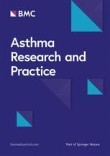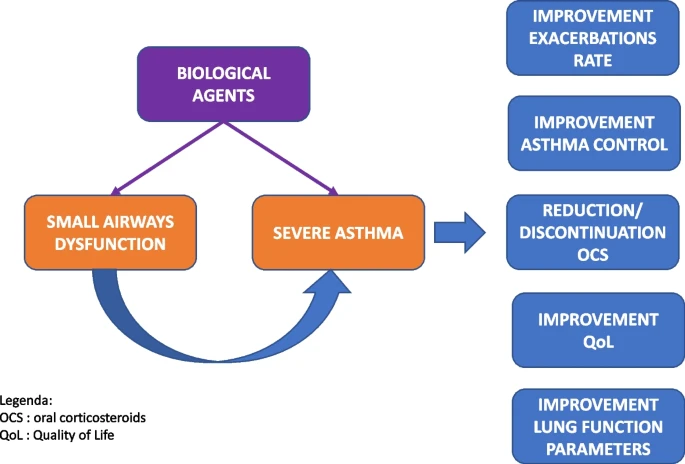Abstract
In recent years, specialized tests have been developed, such as Impulse Oscillometry (IOS) and Multiple Breath Nitrogen Washout (MBNW) tests, which have been deemed more accurate in detecting SAD than conventional spirometry.
Clinical studies show that SAD is associated with more severe bronchial hyperresponsiveness, worse asthma control, and a higher risk of exacerbations. Recent data from a large cohort study showed that the prevalence of SAD in asthma patients increases with asthma severity. Overall, SAD seems to represent a treatable trait, which makes it appealing for asthma control optimization and exacerbation rate reduction, especially in moderate-to-severe asthma.Biologic agents are now available for the treatment of different severe asthma phenotypes and endotypes. However, the effect of these therapies on SAD remains poorly characterized. Literature showing that biologic agents can also favorably improve small airway function is accumulating. In particular, anti-IL5 agents (mepolizumab and benralizumab) seems to have a greater impact on SAD as compared to other biological agents, but direct comparisons in prospective randomized controlled trials are lacking.
In this mini-review article, we address the latest evidence on the effect of biological therapies on SAD in patients with severe asthma.


No comments:
Post a Comment